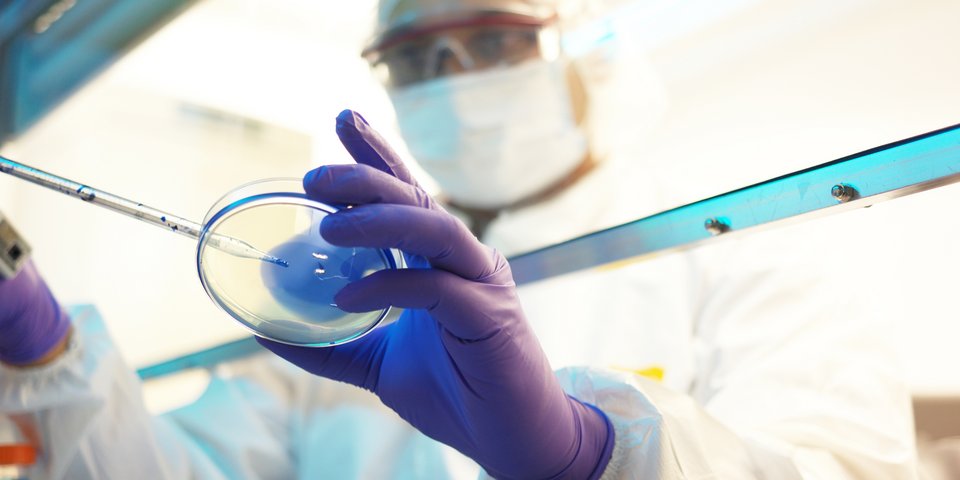 iStockphoto/Reptile8488
iStockphoto/Reptile8488Encouraging the biosimilar market
Biosimilar medicines are products which imitate biological medicines and thus are similar to generic medicines. Like generics, biosimilars have the potential to influence the European pharmaceutical market over the long term. They can be beneficial in the treatment of serious illnesses, as well as help keep medicine prices low. As the EU is the world’s leading market for biosimilar medicines, there are discussions currently taking place in Brussels on the opportunities they provide and the challenges they create.
MS/ME – 04/2017
Biological medicines contain active ingredients which have a biological origin. They are particularly used in the treatment of serious illnesses such as cancer, multiple sclerosis or autoimmune diseases.
The patents on certain high-revenue biological medicines, including medicines that are developed using biotechnology, will expire in 2022. As a result, more and more biosimilar products are being developed and there are already around 30 biosimilars approved for the European market.
Differences between the EU Member States regarding national health systems, structures and processes influence the take up of biosimilars in the medical community, their acceptance by patients, as well as local pricing and reimbursement. This is why the debate has commenced in Brussels.
Stronger competition for biological medicines
Biological medicines are among the most expensive prescription medicines in Germany, which are paid for by German statutory health insurance. Their use has led to a significant increase in costs in the healthcare system. This high expenditure is not due to large volumes of them being prescribed but rather is attributable to the high cost of these medicines. In fact, biological medicines are generally more expensive than synthetic medicines made with chemicals.
An important requirement for the economically sustainable supply of medicines is healthy competition. The German health insurance funds are of the opinion that the provision of affordable medicines in the biotechnology segment should also be encouraged. The availability of more biosimilars promotes EU-wide competition and could lead to lower prices. Easing national regulations on prescribing cheaper biosimilars that are available sooner can improve patient access to drug treatments and increase the financial viability of national health systems. This is particularly beneficial for poorer Member States. The savings made can then be used to finance advancements in healthcare in the future.
Provide incentives for economically viable prescriptions
However, it is not only the development of affordable biosimilars that should be encouraged but also their prescription. Despite general consensus that there are no problems associated with prescribing a biosimilar instead of the original medicine, and thus a change in treatment under medical supervision, the current market share of biosimilars has not reached the levels that generics have with regard to their chemically manufactured counterparts.
This is due, among other things, to the fact that doctors tend to be unwilling to prescribe biosimilars. In order to increase the use of biosimilars, the German statutory health care funds believe that doctors should be encouraged more to prescribe them by explaining that they have the same level of effectiveness and safety, and by providing more information about cheaper biosimilars. In addition, specific incentives should be put in place to promote the financially viable prescription of biological medicines.
Extend obligation in pharmacies to offer alternatives to biosimilars
Biosimilar versions of biological medicines have not played a major role up until now. A significant reason for this is that pharmacists are currently only obliged in certain cases to offer biosimilars instead of biological medicines.
The decision as to whether a biological medicine should be substituted with a biosimilar is outside the decision-making authority of the EU. The European Medicines Agency has therefore refrained from making specific recommendations on the issue. It is up to the relevant authority in the individual Member States to specify whether doctors or pharmacists decide to use biosimilars and how patients are involved in making the decision.
The German statutory health insurance funds are calling for the successful system of obligatory substitution in pharmacies of chemically-synthesised medicines to be extended to biological medicines in order to improve the financial sustainability of providing medicines.
Next steps
The European Commission wants to continue discussing the topic of biosimilars at EU level and has organised a Stakeholder Workshop on 5 May 2017.
More information can be found in the Consensus Information Document “What you need to know about Biosimilar Medicinal Products” published by the European Commission: http://ec.europa.eu/DocsRoom/documents/8242/attachments/1/translations/en/renditions/pdf
